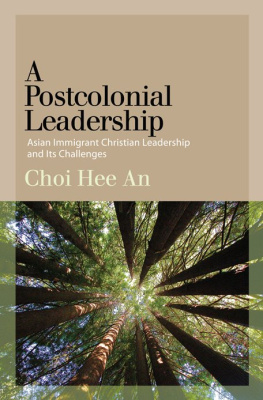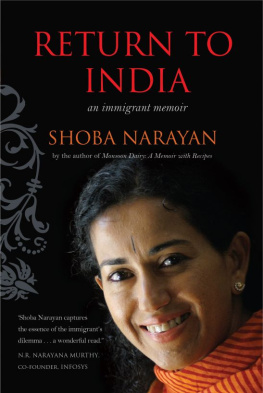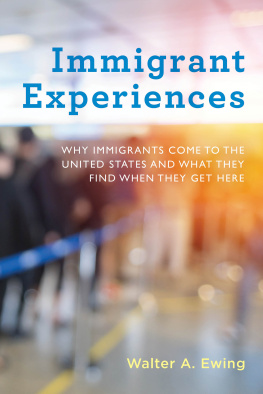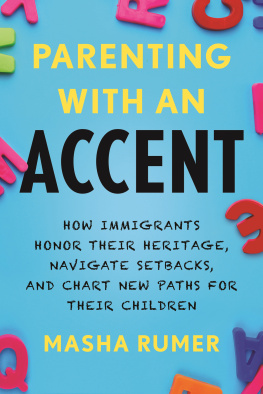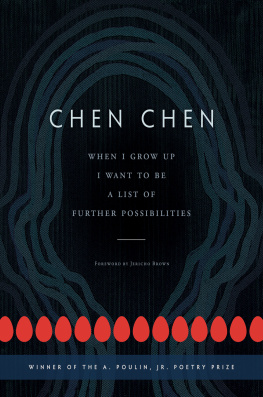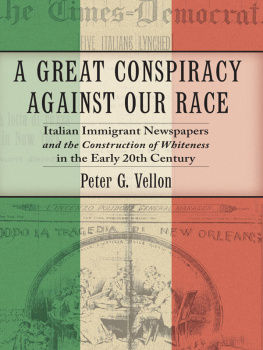Contents
Guide
Pagebreaks of the print version
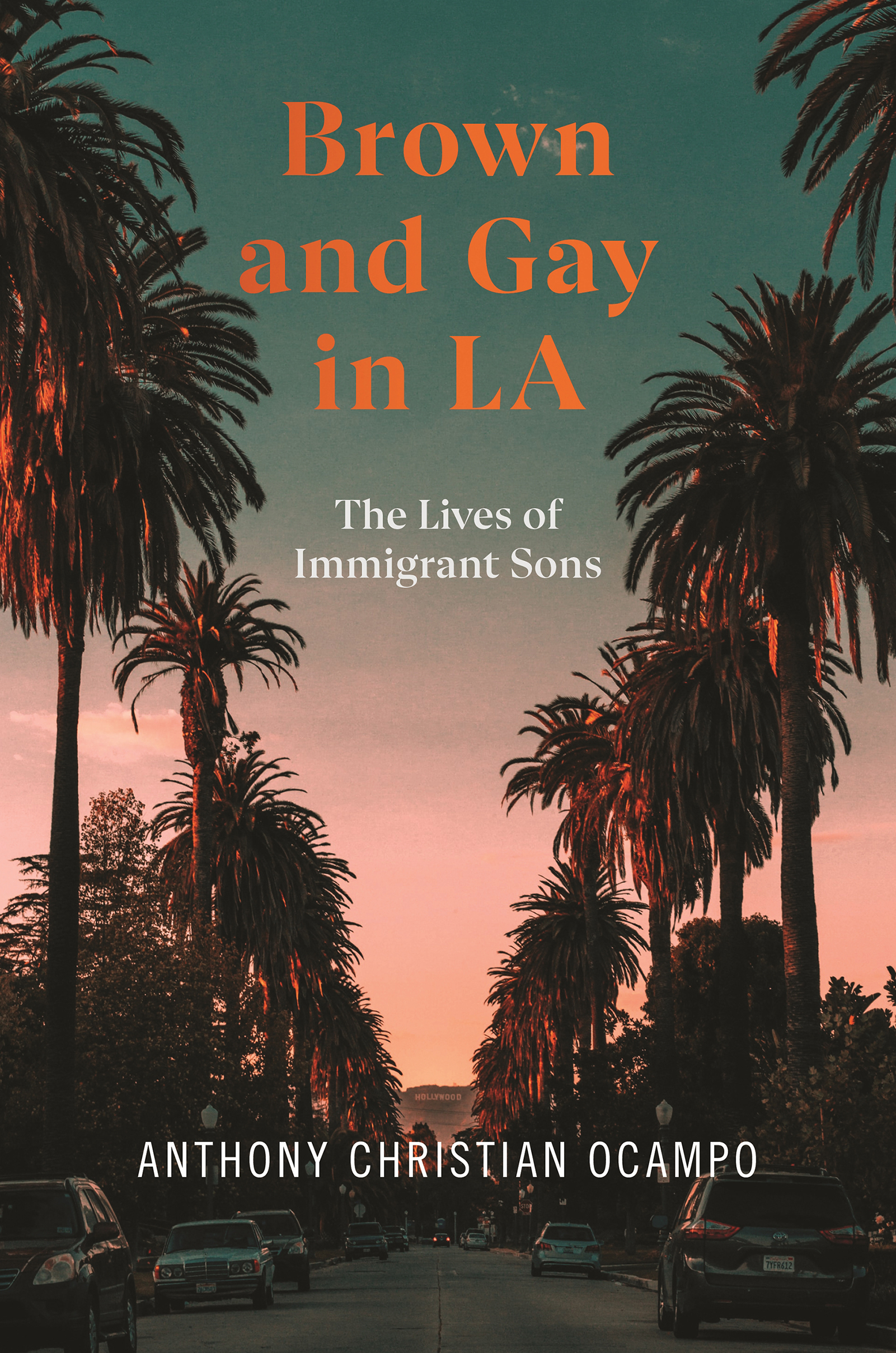
ADVANCE PRAISE FOR Brown and Gay in LA
Ocampo has crafted a gorgeous love letter to a distinctive generation of immigrant sons. In a series of tender portraits, he invites us into the heady world of Brown and Gay Los Angeles at a time of momentous change. Ocampo gracefully fuses his dual roles as storyteller and sociologist to distill the particulars and the universals of this group. The result is a transformative meditation on the meanings and substance of ambition in American life.
Ellen Wu, author of The Color of Success: Asian Americans and the Origins of the Model Minority
In this beautifully written book, Ocampo vividly tells the coming-of-age stories of over sixty young Filipino and Latino gay men in Los Angeles. Their experiences navigating the perilous landscapes shaped by racism and homophobia along with the fraught expectations of masculinity are heartbreaking.
Grace Kao, Yale University
Brown gay sons of immigrants have been largely invisible in nearly all their lifeworldsoften overtly or implicitly hostile to some part of their identityas well as in the academic worlds that would do well to learn from them. Animated by his own voice and those of his many interviewees, Ocampo fills the void with a book that is richly storied, sociologically nuanced, affectingly written, effortlessly intersectional, and painfully hopeful.
Joshua Gamson, author of Modern Families: Stories of Extraordinary Journeys to Kinship
Brown and Gay in LA is at once an incisive sociological analysis of immigration from the perspectives of race, sexuality, and geography, and an emotive account of lives forged from multiple margins. An urgent book that not only asserts the existence of racialized queer experiences in particular times and places, but also invites reconsideration of the possibilities created through survivance of diverse itineraries of exclusion.
Jonathan Rosa, Stanford University
BROWN AND GAY IN LA
Brown and Gay in LA
The Lives of Immigrant Sons
Anthony Christian Ocampo

NEW YORK UNIVERSITY PRESS
New York
NEW YORK UNIVERSITY PRESS
New York
www.nyupress.org
2022 by New York University
All rights reserved
References to Internet websites (URLs) were accurate at the time of writing. Neither the author nor New York University Press is responsible for URLs that may have expired or changed since the manuscript was prepared.
Library of Congress Cataloging-in-Publication Data
Names: Ocampo, Anthony Christian, 1981 author.
Title: Brown and gay in LA : the lives of immigrant sons / Anthony C. Ocampo.
Description: New York : New York University Press, [2022] | Series: Asian American sociology series | Includes bibliographical references and index.
Identifiers: LCCN 2022001983 | ISBN 9781479824250 (hardback) | ISBN 9781479806614 (ebook other) | ISBN 9781479837366 (ebook)
Subjects: LCSH: Gay menCaliforniaLos AngelesSocial conditions. | Asian American gaysCaliforniaLos AngelesSocial conditions.
Classification: LCC HQ76.2.U52 C263 2022 | DDC 306.76/620979494dc23/eng/20220217
LC record available at https://lccn.loc.gov/2022001983
Brown and Gay in LA: The Lives of Immigrant Sons is in the Asian American Sociology Series.
New York University Press books are printed on acid-free paper, and their binding materials are chosen for strength and durability. We strive to use environmentally responsible suppliers and materials to the greatest extent possible in publishing our books.
Manufactured in the United States of America
10 9 8 7 6 5 4 3 2 1
Also available as an ebook
For those who had to fight
for love they always deserved.
Home is not something I should have to earn.
Jose Antonio Vargas, Dear America
CONTENTS
A NOTE ON LANGUAGE
This book chronicles the life experiences of young adult men who have roots in the Philippines, Mexico, and Latin America. All of the men I interviewed are cisgender, meaning they identify with the sex they were assigned at birth: male. They are sons of immigrants. Most were born and all were raised primarily in the United States, which means they are second generation Americans.
The men who trace their roots to Mexico and Latin America generally identified with the ethnic designation related to their parents home country: Mexican, Salvadoran, Cuban, Nicaraguan, Panamanian, and the like. They also referred to themselves as Latino and, less often, Hispanic. Within the last decade, queer activists have popularized the gender-inclusive term Latinx to resist the gender binary and privileging of the masculine designation. In the years I conducted my research, howeverfrom 2012 to 2016my interviewees referred to themselves as Latino; as such, I use that designation when referring to them in the collective.
The men who trace their roots to the Philippines mostly referred to themselves as Filipino. Many of the student organizations they were members of, however, opted for the non-Anglicized spelling: Pilipino. Throughout the book, I mostly stick to Filipino, as this is how my interviewees self-identified.
When referring to Filipino and Latino men collectively, I use the term Brown, which has been used by writers to racially describe people of color who are neither Black nor White.
With respect to capitalization, I capitalize the B in Black to recognize the unique racial history, social movements, and intellectual labor advanced by enslaved Africans and their descendants. While Brown is not employed as a racial identifier in the same way as Black, I opt to capitalize the B, as Brown has been used by Chicanos and Filipinos to mobilize decolonial and antioppressive social movements. Given my desire to shine a light on the racial exclusion perpetuated by White people and institutions (including White gay men), I opt to capitalize the W.
I grappled with how to describe the men when it came to their sexuality and sexual identity. The men generally referred to themselves as gay, and a handful identified as queer. Yet some would switch back and forth between the terms gay and queer indiscriminately; some used queer as a shorthand for the broader LGBTQ community; and some resisted queer altogether. When describing my interviewees, I mainly refer to them as gay sons of immigrants or second-generation gay men. I will use queer, and related terms like queerness and queer sexuality, when highlighting moments when the men challenge heteronormativity and heterosexual privilege, as well as commonplace understandings of what it means to be Filipino or Latino. These men identify as gay and queer because they are sexually attracted to men, but they are also queering what it means to be a son of immigrants, a Filipino or Latino person, a man of color, and ultimately, an American.
Naming matters. In her book Call Them by Their True Names, the feminist historian Rebecca Solnit writes, Precision, accuracy, and clarity matter, as gestures of respect toward those to whom you speak. I am a scholar of race, immigration, and sexuality, and as such, every iteration of ethnicity, race, and sexuality entails careful reflection. There will be moments when I do not get it right, but I want the reader to know that Im perpetually trying to do so.



